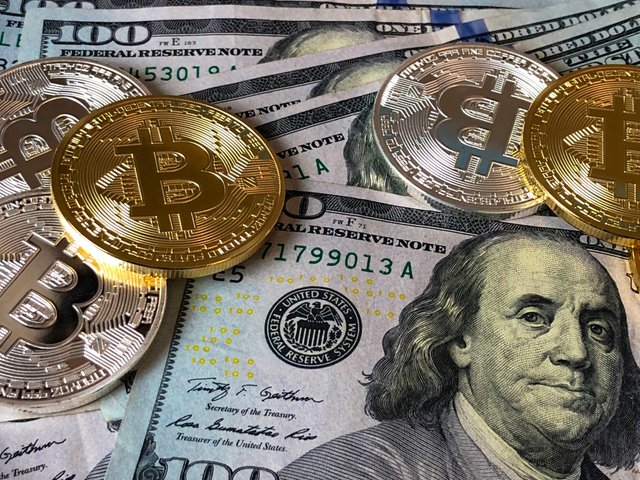
Enjoy hassel free banking-no fees-Int'l transactions and $100 sign up https://tinyurl.com/5bssyztf bonus upon deposit.
Over the years, the financial system has seen steady change. There has been a significant paradigm change in how people conduct transactions and handle their funds with the arrival of technology. The newest participants in the financial sphere are cryptocurrency and crypto banking, which pose a threat to the established financial system. In this post, we'll examine the current financial system in more detail and discuss how cryptocurrencies and crypto banking are upending it.
Traditional banks, which serve as a middleman between savers and borrowers, dominate the current financial system. Banks take money from savers as deposits, pay interest on those deposits, and then lend the money to borrowers. The banks keep a share of the interest collected as profit after the borrowers have repaid the loans in full, plus interest. The old banking system has supported the world economy for many years and is still in place today. It has given borrowers access to loans as well as stability and security for savers.
The current financial system does, however, have some shortcomings. Fees might be costly, transactions can take several days to execute, and creating a bank account can be difficult and time-consuming. Additionally, government regulation and involvement affect banks, which may hinder their ability to provide cutting-edge financial products. There are many people who lack access to standard financial services, especially those who reside in developing nations. Due to this gap in financial inclusion, many people are unable to obtain the financial services they require to advance and prosper
In response to these problems, cryptocurrencies and crypto banking have been developed. A digital or virtual currency that uses cryptography for security is called cryptocurrency. It is decentralized, meaning that no government or financial organization has any influence over it, and it runs without a central bank. In 2009, the cryptocurrency known as Bitcoin was developed. Since then, other new cryptocurrencies have been developed, including Litecoin, Ethereum, and Ripple.
A new kind of banking system known as "crypto banking" makes use of cryptocurrencies as a means of transaction. Users can create digital wallets, store their crypto assets inside, and utilize those wallets to send and receive money using crypto banking. Fees are reasonable, transactions are handled fairly promptly, and creating an account is an easy and quick process. Since they are not governed by government regulations like conventional banks are, crypto banks have more freedom to provide cutting-edge financial services.
Financial inclusivity is one of the main benefits of cryptocurrency banking. Many people lack access to conventional banking services, especially those who live in underdeveloped nations. By making financial services accessible to anyone with a smartphone through cryptocurrency banking, this issue is resolved. People now have access to the resources they need to flourish and prosper, which can have a significant impact on economic development.
Numerous other advantages are provided by crypto banking. Compared to the several-day waiting period for conventional bank transfers, transactions are handled virtually immediately. People can use financial services more affordably because of the cheap fees. Users have total control over their funds and the account opening process is quick and easy.
However, there are other difficulties related to crypto banking as well. The major problem is that cryptocurrencies might be risky investments due to their volatility. There is no assurance that cryptocurrencies will retain their worth, and their value can change significantly. Additionally, the limited acceptance of cryptocurrencies as a means of exchange limits their usefulness. Finally, due to the vulnerability of digital assets to theft and hacking, there are concerns regarding the security of crypto banking systems.
The ambition to create a currency that was independent of governments and central banks was one of the primary drivers behind the creation of Bitcoin. Many people, including the person or persons who invented Bitcoin, were worried about the inflationary policies of central banks that would eventually depreciate the value of fiat currencies. The 21 million coins that make up the finite supply of Bitcoin, in contrast, are released over time through a procedure called mining. This means that neither currency devaluation nor inflation is a possibility.
The creation of Bitcoin was also motivated by the desire to provide people more financial freedom and anonymity. Traditional payment methods require users to divulge their financial and personal data to other parties in order to complete transactions. Yet with Bitcoin, transactions are fully private and don't call for the revelation of private data. Because to this, Bitcoin has been well-liked by those who respect their privacy and wish to keep their financial transactions private.
Last but not least, Bitcoin was developed to be a universal money that anyone, anywhere in the world, could use. Bitcoin offers low-cost international sending and receiving without the geographical limitations and transaction costs of conventional payment methods. Due to this, Bitcoin has become a well-liked option for international money transfers as well as for residents of nations with unstable or unreliable currencies.
In order to build a decentralized, secure, and anonymous payment system that works without the use of middlemen, Bitcoin was developed. It was intended to give people more financial freedom and privacy by serving as a universal currency that anyone could use anywhere in the world.
$500 Free Google Ad credits here https://free-trial.adcreative.ai/AchQ
In conclusion, while the current financial system has its flaws, it has historically offered stability and security. Cryptocurrencies and crypto banking are revolutionizing the industry by providing fresh approaches to pressing problems.
#Finance #DeFi #NFTs #Bitcoin #Investing

